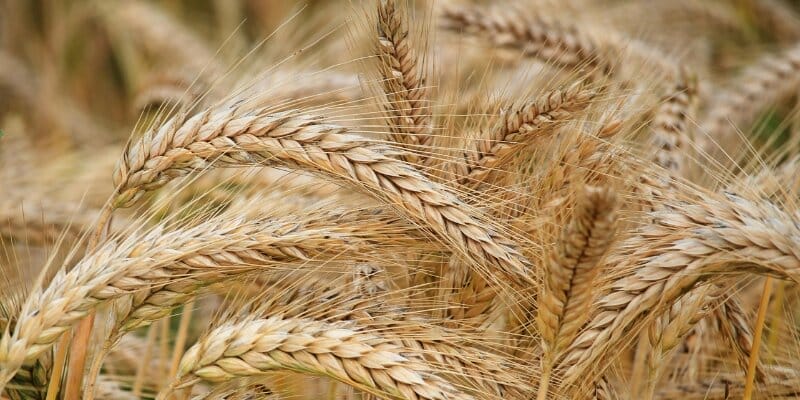Why Do Vets Not Recommend Grain Free Dog Food

The Scoop on Grain-Free : Why Do Vets Not Recommend Grain Free Dog Food
Have you ever wondered why do vets not recommend grain free dog food ? Let’s delve into the reasons behind this hesitation and explore what makes grain-free dog food a topic of debate in the veterinary world.
Understanding Grain-Free Dog Food
Grain-free dog food gained traction as a perceived healthier alternative to traditional dog food containing grains like wheat, corn, and rice. Advocates argued that eliminating grains could alleviate allergies, promote weight loss, and improve overall health in dogs. Consequently, pet owners flocked to grain-free options, believing they were making a beneficial choice for their pets.
Lack of Scientific Evidence
While the concept of grain-free diets seems promising, the scientific evidence supporting its benefits in dogs is limited. Many of the claims surrounding grain-free diets lack substantial scientific backing. Vets emphasize the importance of evidence-based practices when it comes to pet nutrition. Without conclusive research, it’s challenging for veterinarians to confidently recommend grain-free diets over traditional options.
Potential Nutritional Imbalances
Grains, despite their controversial reputation, can provide essential nutrients like carbohydrates, fiber, and certain vitamins and minerals. By eliminating grains from a dog’s diet, there’s a risk of nutritional imbalances, unless carefully formulated alternatives are provided. Some grain-free dog foods compensate by increasing the proportion of other ingredients like meats and legumes. However, this shift may not always guarantee a balanced diet for all dogs.
Concerns Over Dilated Cardiomyopathy (DCM)
One of the most significant concerns surrounding grain-free dog food relates to its potential link to Dilated Cardiomyopathy (DCM), a serious heart condition in dogs. The U.S. Food and Drug Administration (FDA) has been investigating reports of DCM cases in dogs fed certain grain-free diets. While the exact cause-and-effect relationship between DCM and grain-free diets remains unclear, the FDA’s investigation has raised red flags within the veterinary community.
Allergies and Sensitivities
Contrary to popular belief, grains are not the primary culprit behind most canine food allergies. In fact, proteins such as beef, chicken, and dairy are more commonly associated with allergic reactions in dogs. Vets stress the importance of identifying the specific allergens triggering a dog’s symptoms rather than simply opting for a grain-free diet as a blanket solution.
Cost Considerations
Grain-free dog food often comes with a higher price tag compared to conventional options. While some pet owners may be willing to invest in premium diets for their pets, cost can be a significant factor for others. Vets may advise pet owners to consider whether the benefits of grain-free diets justify the additional expense, especially if their dog does not have specific dietary requirements or allergies.
What is grain-free dog food?
Grain-free dog food is a type of pet food that doesn’t contain grains like wheat, corn, or rice. Instead, it often relies on alternative sources of carbohydrates and fiber, such as potatoes, peas, or lentils. Proponents of grain-free diets believe that eliminating grains can help address certain health issues in dogs, including allergies and digestive sensitivities.
These diets have gained popularity among pet owners who seek to provide their dogs with what they perceive as a more natural or ancestral diet. However, the scientific evidence supporting the benefits of grain-free dog food is limited, and concerns have been raised regarding potential nutritional imbalances and health risks associated with certain ingredients used as substitutes for grains.
Pros and Cons of Grain-Free Dog Food
Pros:
- Potential Allergy Relief: Grain-free dog food can be a boon for dogs with grain allergies or sensitivities. By eliminating common allergens like wheat, corn, and soy, these diets may help alleviate itching, skin irritation, and digestive issues in sensitive pups.
- Weight Management: Some grain-free dog foods are formulated with higher protein and lower carbohydrate content, which can be beneficial for dogs prone to obesity or those requiring a high-protein diet for muscle maintenance and energy levels.
- Improved Digestion: For dogs with digestive issues or sensitivities to grains, switching to a grain-free diet may lead to better digestion and reduced gastrointestinal discomfort. The absence of grains can result in firmer stools and fewer instances of bloating or gas.
Cons:
- Nutritional Imbalances: Grains provide essential nutrients like carbohydrates, fiber, and certain vitamins and minerals. Removing grains from a dog’s diet without suitable replacements can lead to nutritional imbalances and deficiencies if not carefully formulated.
- Potential Health Risks: Recent concerns have emerged regarding the potential link between grain-free diets and dilated cardiomyopathy (DCM), a serious heart condition in dogs. While the exact cause-and-effect relationship remains unclear, some studies suggest that certain ingredients used as grain substitutes may contribute to DCM risk.
- Cost Considerations: Grain-free dog food often comes with a higher price tag compared to traditional options. This can be a significant factor for pet owners on a budget, especially if the perceived benefits of grain-free diets do not outweigh the added expense.

Grain free dog food warning
The Warning Signs
Despite the initial enthusiasm surrounding grain-free diets, warning signs began to emerge within the veterinary community. Concerns were raised regarding the potential link between grain-free dog food and dilated cardiomyopathy (DCM), a serious heart condition in dogs. Reports of DCM cases in dogs fed certain grain-free diets prompted investigations by regulatory authorities like the U.S. Food and Drug Administration (FDA).
Understanding the Risks
While the exact cause-and-effect relationship between grain-free diets and DCM remains unclear, several factors have come under scrutiny. Some researchers hypothesize that certain ingredients used as substitutes for grains, such as peas, lentils, and potatoes, may contribute to DCM risk when present in high quantities. Additionally, the nutritional adequacy of grain-free diets and the potential for imbalances have raised concerns among veterinarians.
Guidance for Pet Owners
In light of the grain-free dog food warning, pet owners are urged to approach dietary decisions for their dogs with caution. Consulting with a veterinarian is essential to evaluate whether a grain-free diet is appropriate for their dog’s specific needs and health status. Veterinarians can provide personalized recommendations based on factors such as breed, age, size, and any existing health conditions.
Alternatives and Considerations
For pet owners concerned about the potential risks associated with grain-free diets, there are alternative options available. Traditional dog foods containing grains can still provide balanced nutrition and meet the dietary requirements of most dogs. It’s essential to prioritize the nutritional adequacy of the diet and focus on ingredients that support overall health and well-being.
What does grain-free dog food cause heart problems
Grain-free dog food has garnered attention recently due to concerns about its potential link to heart problems in dogs. While the exact cause-and-effect relationship remains under investigation, some studies suggest a correlation between certain ingredients used in grain-free diets and an increased risk of heart conditions like dilated cardiomyopathy (DCM). Ingredients such as peas, lentils, and potatoes, often used as substitutes for grains, have come under scrutiny for their potential role in contributing to heart issues. However, it’s essential to note that not all grain-free diets may pose the same risks, and further research is needed to fully understand the connection between diet and heart health in dogs.
As such, pet owners are encouraged to consult with their veterinarians to make informed decisions about their dogs’ diets and prioritize balanced nutrition to support overall well-being.
Grain-free dog food myth
We’ll debunk the grain-free dog food myth and shed light on what pet owners should consider when it comes to choosing the best diet for their furry friends.
The Myth
The myth surrounding grain-free dog food suggests that grains are inherently harmful to dogs and should be eliminated from their diets entirely. Proponents of grain-free diets argue that grains can cause allergies, digestive issues, and other health problems in dogs, leading many pet owners to opt for grain-free options in the belief that they’re making a healthier choice for their pets.
Debunking the Myth
Contrary to popular belief, grains are not inherently harmful to dogs, and the notion that grain-free diets are universally superior is a myth. In fact, grains can provide valuable nutrients such as carbohydrates, fiber, and essential vitamins and minerals that contribute to a balanced diet for dogs. While some dogs may have grain allergies or sensitivities, they are relatively uncommon compared to other allergens like proteins from meat sources.
Conclusion
In conclusion, while grain-free dog food may appeal to pet owners seeking alternative dietary options for their furry friends, veterinarians exercise caution when recommending it. The lack of substantial scientific evidence, concerns over potential nutritional imbalances, and the ongoing investigation into its link with DCM underscore the importance of informed decision-making in pet nutrition. Ultimately, consulting with a veterinarian to tailor a diet suitable for your dog’s specific needs and health status remains the best course of action.
Why Do Vets Not Recommend Grain Free Dog Food
FAQs
1. Why do some veterinarians dislike grain-free dog food?
Some veterinarians are cautious about grain-free dog food because it may lack essential nutrients, leading to potential health issues for dogs.
2. Can grain-free diets be harmful to dogs?
Grain-free diets might pose risks if they don’t provide necessary nutrients like fiber and carbohydrates, leading to digestive problems or other health issues in dogs.
3. What is the perspective of veterinarians on grain-free dog food?
Veterinarians generally advise against solely relying on grain-free diets unless there are specific dietary requirements or allergies. They emphasize balanced nutrition for overall canine health.
4. What types of dog food do veterinarians typically not recommend?
Veterinarians may caution against dog foods that lack essential nutrients or those that rely heavily on fillers, by-products, or artificial additives.
5. Is grain-free dog food better or worse for dogs?
The suitability of grain-free dog food varies depending on the individual dog’s health needs and dietary requirements. It’s not inherently better or worse; balanced nutrition is key.
6. What grains should dog owners be wary of feeding their dogs?
While some dogs may have grain allergies, common grains to watch out for include wheat, corn, and soy. However, not all grains are necessarily harmful to dogs; it depends on individual sensitivities.






